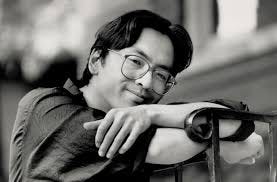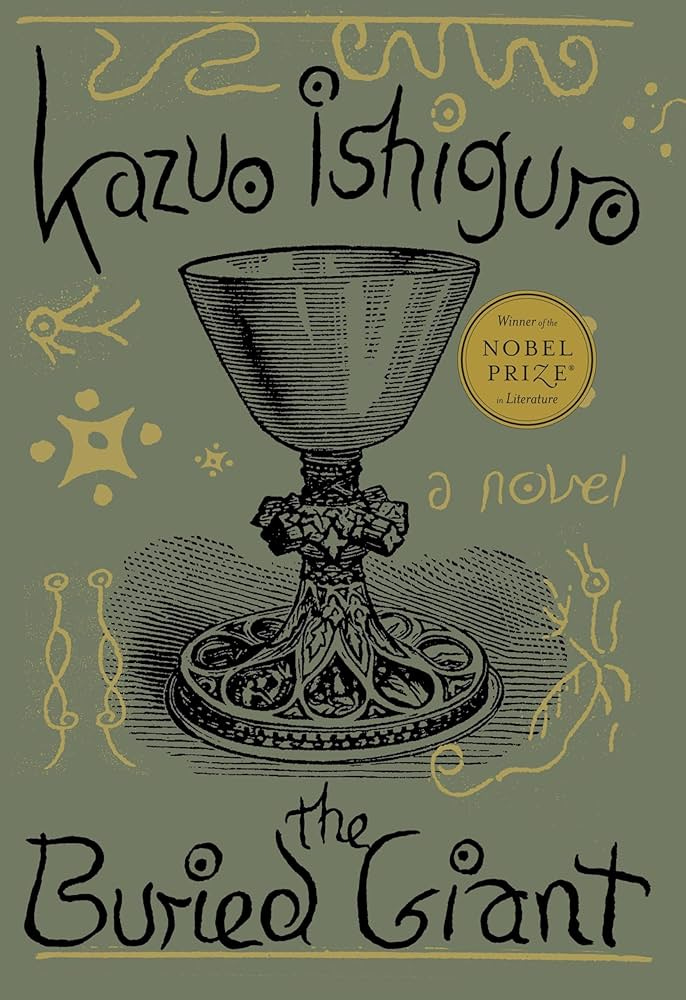“‘Was I ever the one to stop us journeying to our son’s village?’”
Kazuo Ishiguro does not write mysteries, but he gets more mileage out of mystery — the disquieting, mom-and-dad-are-whispering sense that something is being concealed — than entire crime racks in a bookstore. Why is that butler being so weird about Lord Darlington? Why is that boarding school so obsessed with its students’ health? Why is that musician having such a hard time finding somewhere to practice? Ishiguro has built an entire shelf of prizewinners from simply provoking and then refusing to answer the sorts of questions that my daughter asks when we’re watching a movie.
Getting adults to ask this sort of question takes a surprising amount of skill. In fact it takes more skill than writing beautiful descriptions of landscapes, or witty dialogue, or any of the other hundred things that Ishiguro does no better than your average MFA student. He is a strikingly, at times maddeningly, plain and pace-less writer. His prose issues flavorlessly forth like mist from a humidifier. And yet he is not merely celebrated, he is great; he is among the two or three contemporary authors whose books I would rush to save from a civilizational fire.
Because one thing you don’t realize until you try writing a book yourself is that placing the reader in a state of prolonged uncertainty is uncomfortable. It requires a willingness to look foolish, slow, obtuse. It requires you to behave — behave convincingly — as if you can’t quite hear the reader’s questions, or haven’t thought of them. Reading Ishiguro feels like walking behind someone who keeps dropping things from his tote bag — a spring, a button, a box of matches, an alarm clock. Only on the last page, when you’ve finally caught up to him (Sir, do you have a hole in your bag or something?), do you realize that what you’re holding is a fully assembled bomb.
Watch how masterfully, how naturally, he starts dropping things in The Buried Giant.
The Buried Giant is, incidentally, the Ishiguro book that even Ishiguro fans have to gird themselves before attempting. Set in the 6th century, featuring dragons and ogres, centered around a memory-obscuring (and therefore, you’d think, character- and story-obliterating) mist, it seems to have so much not going for it that you might, as I did, leave it sitting unread on your shelf for ten years, awaiting a fit of reckless readerly optimism. Well, last week that fit finally came. Thank God.
Not only is it good in the way that Ishiguro novels are good (moving, subtle, secretly funny) — it’s also good in the way that adventure stories are good when you’re a kid, before swords and castles and moats and dungeons have lost their primal, stone-scented power. This, I kept thinking, must be what people feel when they read The Lord of the Rings or The Princess Bride. I found myself up in the middle of the night, turning pages madly, trying to breathe as quietly as possible so as not to wake the dragon.
The story concerns an elderly couple, Axl and Beatrice, who set off on a journey to visit their son in a distant village. Their journey is difficult not only because they’re old, or because their path is studded with mountains and ogres and hostile strangers, but also because a supernatural mist — something like The Nothing in The Never-Ending Story — is sweeping across England, making everyone forgetful.
“Our son, Axl. Do you remember our son?… A fine, strong, upright man… He’ll protect us and see no one treats us ill. Will your heart not change on it, Axl, and all these years now passed? Do you still say we can’t go to him?”
Except Axl doesn’t remember ever having said they couldn’t go to him in the first place.
“What’s this you’re saying, princess? Was I ever the one to stop us journeying to our son’s village?”
Do you not feel, reading this, that Ishiguro is making a profound mistake? You are still, just twenty pages in, dubious about the wisdom of supernatural mist as a plot device (isn’t fog the antithesis of everything — specificity, vividness, speed — we look for in a piece of writing?), and now he’s walking you, with geriatric patience, around the perimeter of his folly. Not only can’t his characters set off; they can’t even remember why they didn’t set off the last time. Ishiguro has dropped motivation, velocity, the hope of coherence.
And yet: don’t you feel something strange in the shape of that last sentence in your hands? Was I ever the one to stop us journeying to our son’s village? Ishiguro could have written Was I ever really the one…, and we would hear it as an old man gently but confidently correcting his mixed-up wife (Was I really wearing a tutu and standing on the counter or were you just dreaming, dear?). But Ishiguro has outfitted Axl with no such assurance. Axl’s uncertainty is naked, a bit panicky. It’s the unsureness of a blackout drunk noticing a dent in the car. Did he stop them from visiting their son’s village? Why?
We won’t know the answer — we won’t even know if we’re asking the right question — for many pages. But Ishiguro has planted the first of many suggestions (none obvious, none ignorable) that something else might be happening with this mist, that forgetting might, for certain people, for certain groups of people, be desirable, might even be lifesaving. Or maybe we’re just seeing shapes in the fog. This Nobel-winning author has once again written something so unassuming, so strange, so microscopically suggestive, that we wonder if he even knows what he’s doing. And so we hurry along behind him to find out.





Shockingly, although perhaps not shockingly now that you have read it, this is one of my favorite books. I could not be happier that you love it too! I feel much more justified in my choice :)
Another essay as literature. Certainly there must be a prize waiting somewhere for this: His prose issues flavorlessly forth like mist from a humidifier.